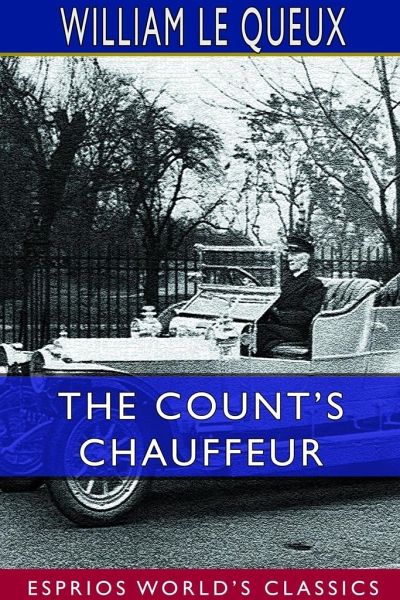Nicht lieferbar

The Count's Chauffeur (Esprios Classics)
Versandkostenfrei!
Nicht lieferbar
William Tufnell Le Queux (1864-1927) was a British journalist and writer. He was also a diplomat and a traveler. He also was a wireless pioneer who broadcast music from his own station long before radio was generally available. He studied painting in Paris. He was foreign editor of The Globe newspaper during the 1890s. He wrote in the genres of mystery, thriller, and espionage, particularly in the years leading up to World War I. "In Paris, in Rome, in Florence, in Berlin, in Vienna-in fact, over half the face of Europe, from the Pyrenees to the Russian frontier-I am now known as "The Count's ...
William Tufnell Le Queux (1864-1927) was a British journalist and writer. He was also a diplomat and a traveler. He also was a wireless pioneer who broadcast music from his own station long before radio was generally available. He studied painting in Paris. He was foreign editor of The Globe newspaper during the 1890s. He wrote in the genres of mystery, thriller, and espionage, particularly in the years leading up to World War I. "In Paris, in Rome, in Florence, in Berlin, in Vienna-in fact, over half the face of Europe, from the Pyrenees to the Russian frontier-I am now known as "The Count's Chauffeur."



